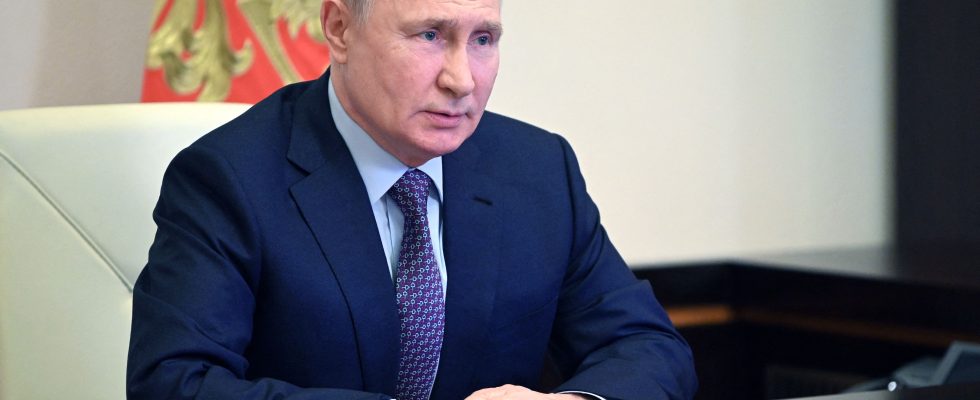France accused, on Tuesday June 13, Russia of carrying out a vast operation of digital interference by publishing false articles from major French daily newspapers hostile to Ukraine, actions falling under Moscow’s “hybrid war” and “unworthy of ‘a permanent member of the United Nations Security Council’.
“The French authorities have revealed the existence of a digital information manipulation campaign against France involving Russian actors and in which state entities or entities affiliated with the Russian state have participated by amplifying false information” , said Foreign Minister Catherine Colonna in a statement read by her spokesperson, adding that Paris was in “close ties” with its allies “to defeat the hybrid war carried out by Russia”.
“More sophisticated modes of action”
The campaign targeted several media sites, but also that of the Ministry of Foreign Affairs and other government sites, by creating mirror sites, said spokesperson Anne-Claire Legendre. So far, France has followed a cautious doctrine when it comes to attribution of digital attacks. “The involvement of Russian embassies and cultural centers which have actively participated in the amplification of this campaign, including through their institutional accounts on social networks, is a new illustration of the hybrid strategy that Russia is implementing to undermine the conditions for a democratic debate,” the minister said.
The operation unveiled by the government is more precisely “the second phase of an already known campaign, but with more sophisticated modes of action intended to circumvent countermeasures and be less visible”, explains to AFP a source. security involved in the case.
This is the Doppelgänger operation (in some European folklore, a Doppelgänger is the evil double of a person), already documented in 2022 in particular by the European organization EU DisinfoLab and the American giant Meta.
At the end of September, Facebook’s parent company announced that it had dismantled a “secret influence” operation on its platform from Russia to amplify the visibility of these articles from pirate sites, for which its promoters, two marketing consulting companies and information technology, had spent $105,000. “Meta hoped that his report would put an end to the operations, this was not the case”, explains the security source.
Four French dailies
At least four French dailies, the Parisian, Le Figaro, The world And 20 minutes were victims of the operation, but other major media were also targeted, notably German (FAZ, Der Spiegel, Picture, Die Welt…)
The hackers produced fake articles on a page identical in all respects to those of the official site of these media, but with a different domain name, for example. ltd instead of. Fr.
The copy is so thorough that a click on the hypertext links it contains refers to the other articles of the real newspaper. The practice is called “typosquatting”. These fake articles are then spread through social networks trying to push their virality, which seems to remain low for now.
“We found dozens of domain names bought by the Russians for typosquatting. We are not dealing with people who act at homeopathic doses. They are at the beginning of an industrialization process”, explains to the AFP the security source.
“We do not know their final objective. Is it micro-targeting of certain populations? Is it for a permanent low-intensity campaign? Or for a massive action at some point? precise?”, she adds, specifying that the whole “is very well coordinated and structured”.
Many intox
The initial structure of the operation is called RRN, from the name of the pro-Russian site RRN. world, for Reliable Recent News (previously called Reliable Russian News), a site created a few months after the start of the war in Ukraine which shared numerous disinformation, in particular on a so-called staging of the Boutcha massacre. In addition to typosquatting, it engages in other influence operations, such as the production of anti-Zelensky cartoons or pro-Russian narratives and disinformation via certain so-called “reinformation” sites.
This operation is part of an already long and documented practice of influence actions carried out by Russia. In the case of the invasion of Ukraine, Moscow is betting on fake news to undermine Western public support. Putin “waits for Western societies to get tired”, said a senior European official on Monday, recalling that “last winter was mild”, but that “if the next one is hard” and the price of heating flies away, that could “generate tensions in societies”.
